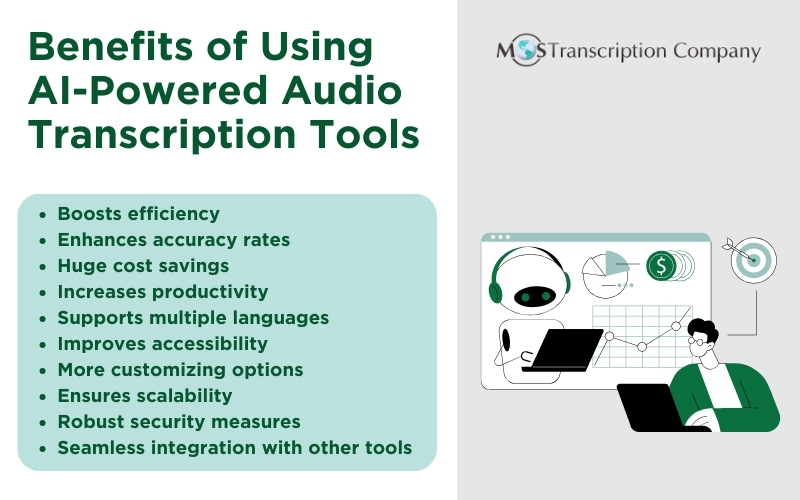
Revolutionizing Legal Documentation: The Power of AI-Powered Legal Transcription
Legal professionals grapple with vast amounts of information daily, and the demand for accurate and efficient transcription services has never been higher. Enter AI-powered legal transcription, a transformative solution that is reshaping the way legal documentation is handled.
Precision in Legal Transcription
AI-powered legal transcription brings a new level of precision to the transcription process. The advanced algorithms of these systems ensure accurate conversion of spoken words into written text. Legal professionals can rely on this technology to capture every nuance and detail, reducing the risk of errors inherent in traditional transcription methods.
Enhancing Efficiency and Time Management
Efficiency is a cornerstone of AI-powered legal transcription. The speed at which these systems transcribe audio content is unparalleled. Legal professionals can save significant time on manual transcription tasks, allowing them to focus on more strategic and value-added aspects of their work. This enhanced efficiency contributes to better time management and increased productivity.
Adapting to Diverse Legal Settings
AI-powered legal transcription is designed to adapt to the diverse settings in which legal professionals operate. Whether it’s courtroom proceedings, client meetings, or depositions, these transcription tools excel in various environments. The versatility of AI-powered transcription ensures that legal practitioners can rely on the technology across a spectrum of legal scenarios.
Improving Accessibility to Legal Information
Legal information is at the core of the legal profession, and AI-powered legal transcription plays a crucial role in making this information more accessible. Transcribed documents can be easily searched, edited, and shared, providing legal professionals with quick access to relevant information. This improved accessibility fosters more informed decision-making.
Integration with Legal Tech Ecosystems
AI-powered legal transcription seamlessly integrates into existing legal tech ecosystems. These tools can be connected to case management systems, document repositories, and other legal software, creating a cohesive workflow. The integration enhances the overall efficiency of legal processes and ensures a smooth transition between transcription and subsequent legal tasks.
Data Security in Legal Transcription
Addressing the paramount concern of data security, AI-powered legal transcription solutions often come equipped with robust security measures. Encryption protocols and secure storage options safeguard sensitive legal information. Legal professionals can trust that their transcribed documents remain confidential and comply with privacy regulations.
Cost-Effectiveness in Legal Operations
The cost-effectiveness of AI-powered legal transcription is a significant advantage for legal firms. By automating transcription tasks, organizations can reduce the need for manual transcription services, leading to cost savings. This efficiency-driven approach contributes to optimizing the overall operational costs within the legal industry.
Continuous Learning and Improvement
One of the strengths of AI-powered transcription lies in its ability to continuously learn and improve. As these systems process more data, they enhance their accuracy and adapt to industry-specific language nuances. This continuous learning ensures that legal professionals using AI-powered transcription benefit from evolving and refined transcription capabilities.
Exploring AI-Powered Legal Transcription with AstroidIT
For legal professionals eager to explore the capabilities of AI-powered legal transcription, AI-powered legal transcription offers a gateway to transformative solutions. By leveraging these advanced tools, legal practitioners can elevate their transcription processes, embracing a new era of accuracy, efficiency, and accessibility in legal documentation.


